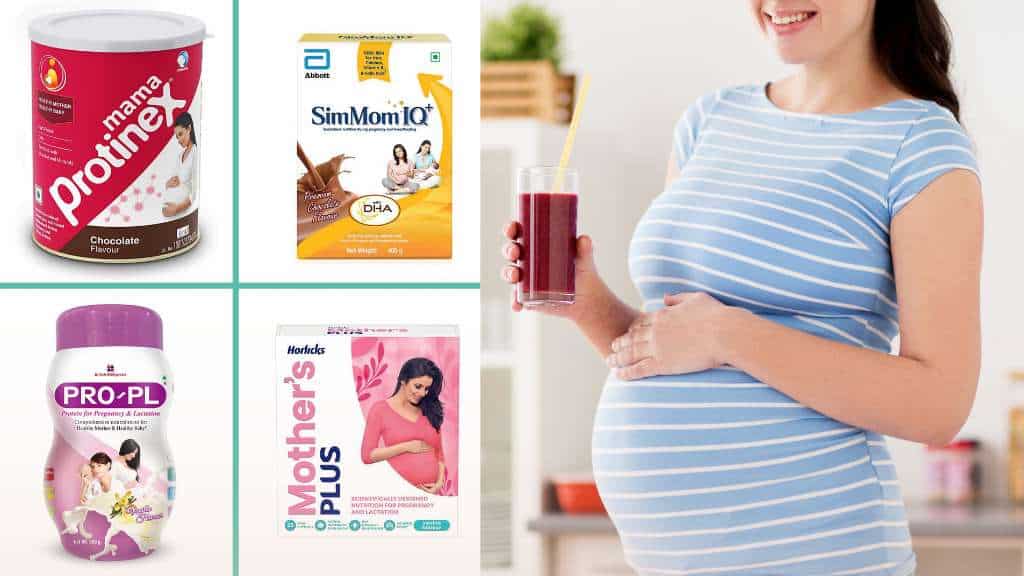
Introduction
Pregnancy is a crucial time in a woman’s life when she needs to pay close attention to her nutrition. A balanced and nutritious diet is essential for both the mother’s health and the development of the growing fetus.
Protein is a vital macronutrient that plays a crucial role in supporting the mother’s health, aiding in the development of the baby, and ensuring a healthy pregnancy. In this blog post, we will explore the best protein powder for pregnancy and how it can contribute to the overall well-being of expectant mothers.
Importance of protein powder for pregnancy
Protein is known as the “building block” of life, and it plays a critical role in various bodily functions. During pregnancy, the demand for protein increases significantly as it is required for the growth and repair of tissues, cell development, and the production of enzymes and hormones. Additionally, protein is essential for the development of the baby’s organs, muscles, and bones.
Benefits of protein powder for pregnancy
- Meeting increased protein requirements
During pregnancy, the recommended daily intake of protein is approximately 75 to 100 grams, depending on individual factors such as pre-pregnancy weight and activity level.
Meeting these increased protein requirements solely through whole foods can sometimes be challenging. Protein powder can be a convenient and reliable source of high-quality protein to ensure that pregnant women meet their daily protein needs.
- Easy digestion and absorption
Some pregnant women experience digestive issues such as nausea, bloating, or aversions of certain foods. Protein powder, especially those made from whey or plant-based sources like pea or rice protein, can be easily digested and absorbed by the body.
This makes it an excellent option for expectant mothers who may struggle with consuming protein-rich foods due to morning sickness or other digestive discomforts.
- Nutrient-dense and balanced
Protein powders formulated specifically for pregnancy often contain additional essential nutrients such as folic acid, iron, calcium, and omega-3 fatty acids. These nutrients are crucial for the healthy development of the baby and support the mother’s overall well-being. Choosing a high-quality protein powder designed for pregnancy can help ensure a well-rounded nutrient intake.
- Energy boost and muscle recovery
Pregnancy can be physically demanding, and expectant mothers may experience fatigue and muscle soreness. Protein powder can provide an energy boost and aid in muscle recovery, allowing pregnant women to maintain their activity levels and support a healthy lifestyle during this crucial time.
- Weight management
Protein is known to promote satiety and can help control appetite, which can be beneficial for managing weight gain during pregnancy. Incorporating protein powder into a well-balanced diet can help pregnant women feel fuller for longer, reducing the likelihood of excessive calorie intake and unhealthy weight gain.
Best protein powder for pregnancy
When selecting a protein powder for pregnancy, it’s important to consider the following factors:
1. Safety: Choose protein powders that are specifically labeled as safe for pregnant women and have undergone rigorous testing for contaminants.
2. Quality: Opt for high-quality protein powders made from reputable brands that prioritize sourcing clean ingredients and employ strict quality control measures.
3. Ingredients: Read the ingredient list carefully and avoid protein powders with added sugars, artificial additives, or unnecessary fillers. Look for natural and organic options whenever possible.
4. Protein Source: Select a protein powder that aligns with your dietary preferences and restrictions. Common options include whey protein (if not lactose intolerant), plant-based proteins (such as peas, rice, or hemp), or collagen protein.
Some of the best protein powder for pregnancy available are:
1. Orgain organic protein
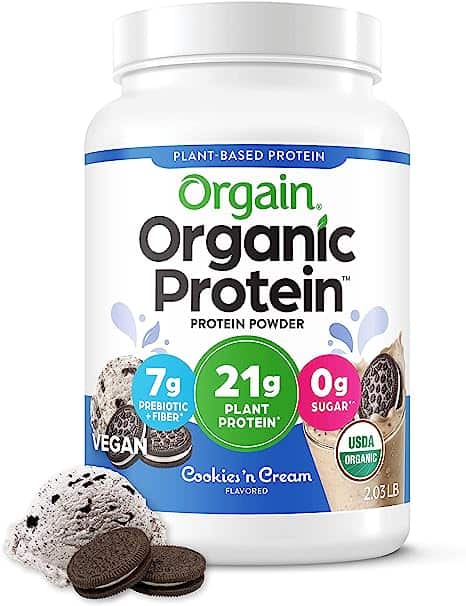
Consider this inexpensive vegan choice. With this option, you’ll receive little more than 2 pounds of organic, plant-based powder with a delicious vanilla flavor. You can rely on this supplement to satisfy your nutritional demands because it contains organic pea protein and organic brown rice protein as its first two ingredients. There are more than a dozen flavors of this protein powder that is safe to consume during pregnancy, including horchata, iced coffee, strawberries and cream, and pumpkin spice.
- The serving size is 46 grams, with 21 grams of protein per serving.
2. Ritual essential protein
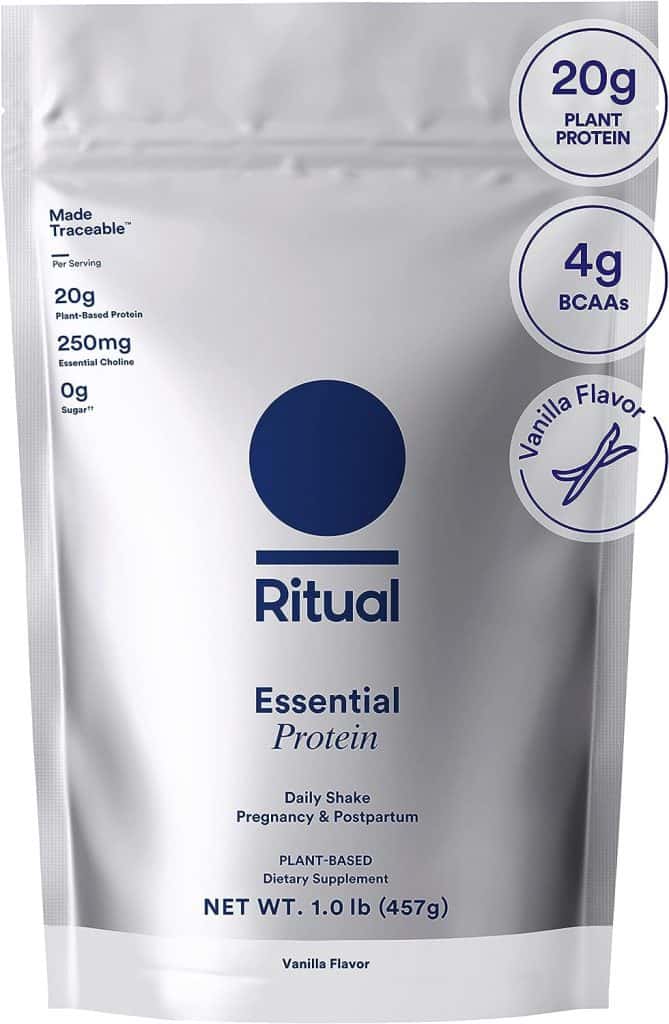
This pregnancy-safe best protein powder is for all plant-based eaters, whether they are vegan, vegetarian, or mostly so. This choice, which was developed with pregnancy and the postpartum periods in mind, may be enjoyed for the duration of all three trimesters—and beyond. It contains organic pea protein as its main component and is free of gluten and other common allergies. Another plus: It has 250 grams of choline, which is important for the prenatal brain development of the fetus. Not only that, but the protein powder for pregnancy has a mouthwatering flavor profile with touches of cinnamon, caramel, and vanilla.
- Serving size: 30 grams; weight: 1 lb; 20 grams of protein per serving.
3. Mama bird protein
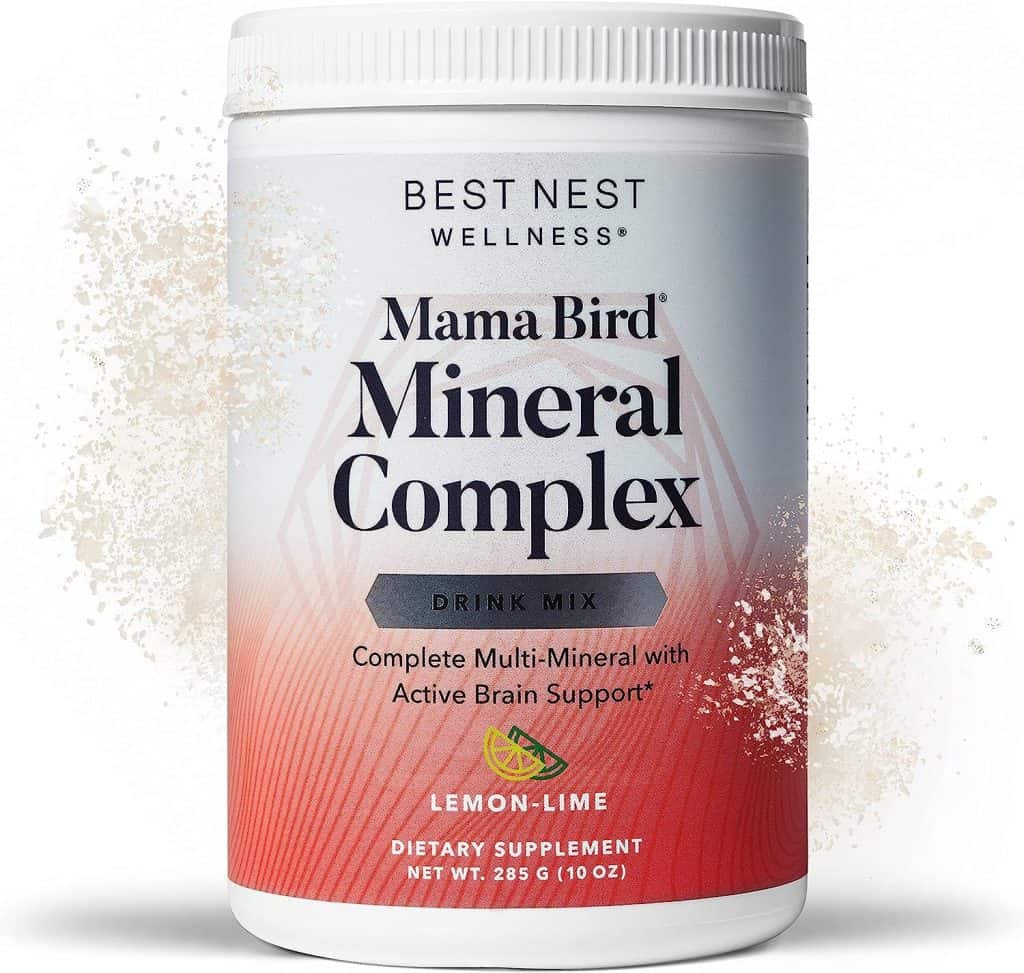
Are you looking for a pregnant protein powder that is organic? It’s impossible to go wrong with this Mama Bird product. It is vegan and only contains a small number of organic natural ingredients, such as organic pea and hemp proteins. You may eat this pregnancy-safe protein on its own or make a delightful snack by mixing it with milk, fruit, or nut butter.
- The serving size is 21 grams, including 15 grams of protein per serving.
4. Pink story pregnancy
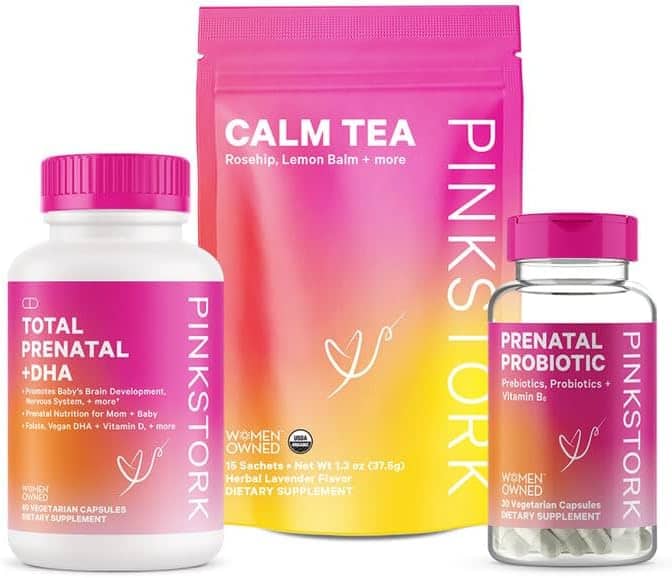
Have your chocolate cravings increased after becoming pregnant? You’re covered with this protein powder that is safe for pregnancy. This chocolate truffle-flavored beverage can help you meet 40% of your daily protein requirements with just one cup. We like that it includes natural electrolytes for supplemental hydration as well as collagen to enhance the wellness of our muscles and joints. Even better, it doesn’t include gluten or other common allergies and is produced without using GMOs.
- The serving size is 25.4 grams, with 20 grams of protein per serving.
5. Baby booster
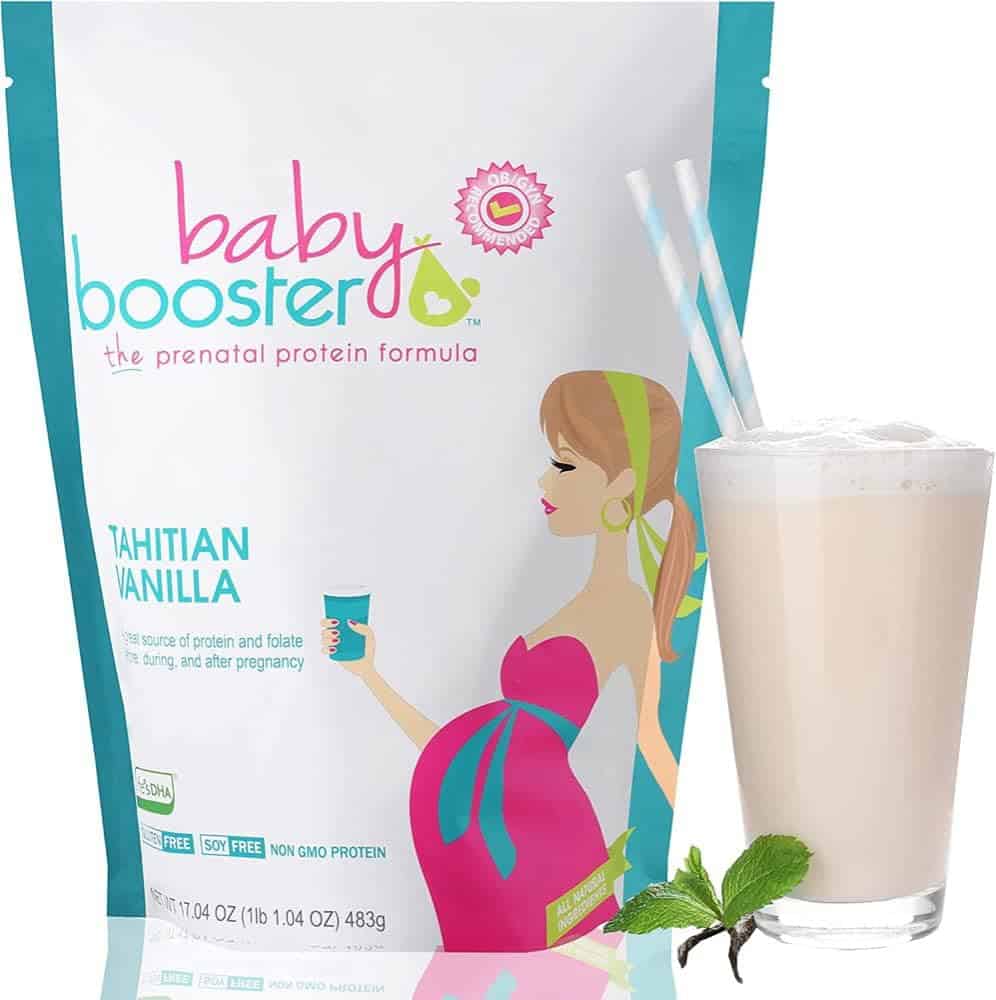
Love vanilla? Then choose this protein powder when you’re pregnant. You’ll get 20 grams of protein in each meal, so you can bet on easily achieving your daily dietary objectives. Folate, vitamin B6, and omega-3 fatty acids are other essential components that support a baby’s prenatal growth. For a quick and easy meal supplement, combine this powder with your favorite milk-based beverage or your go-to smoothie components.
- Serving size: 32 grams; weight: 1 lb; 20 grams of protein per serving.
6. Needed Prenatal collagen
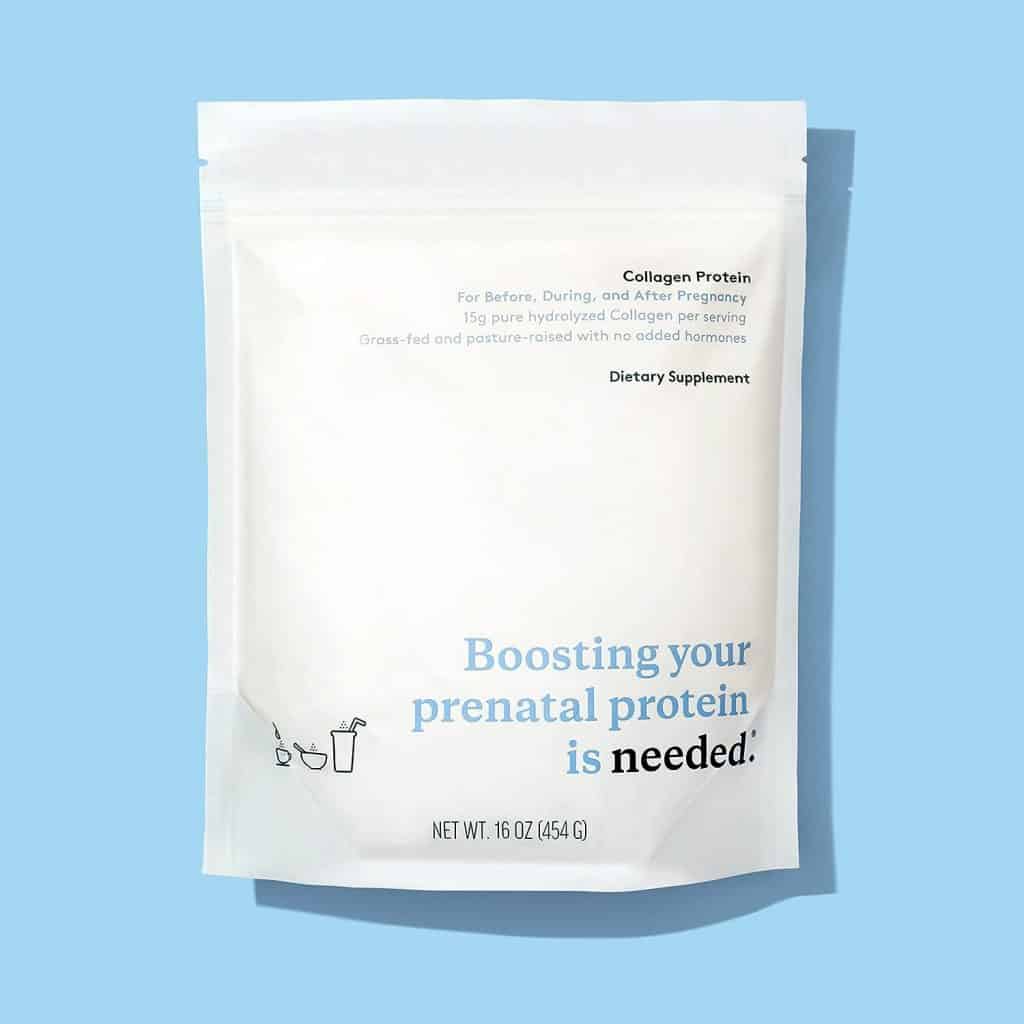
This is vital since it gives you everything you want from a protein powder without any frills that are not necessary. Collagen is a protein that is found in our skin, bones, and joints if you are unfamiliar with it. It may be consumed as a protein powder supplement in addition to being present in many protein-rich meals. This collagen powder contains only hydrolyzed bovine collagen protein, which comes from pasture-raised, grass-fed cows.
- Each serving of the collagen powder from Needed contains 14 grams of pure collagen protein.
7. Klean Athlete Klean Isolate
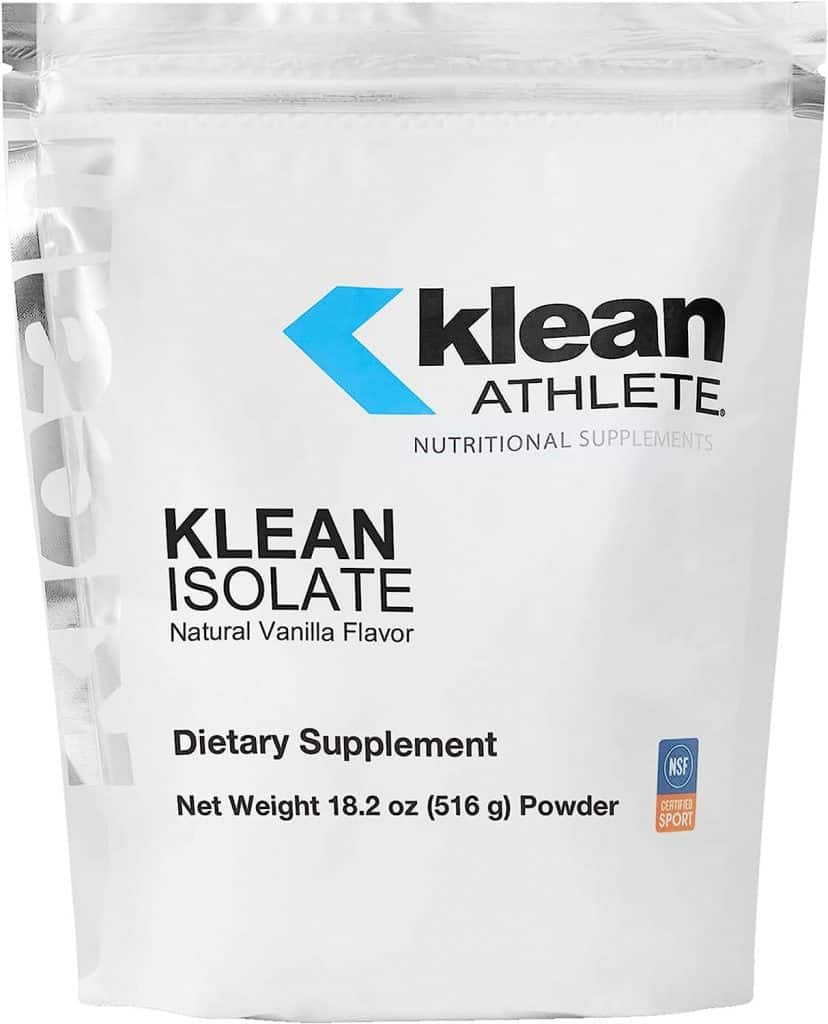
Because whey protein is a strong source of muscle-building branched-chain amino acids (BCAAs), it is a popular protein powder choice, particularly among athletes. Klean Athlete is a protein powder alternative because it is NSF Certified for Sport. This indicates that it is devoid of any compounds or masking agents that are forbidden for athletes, in addition to being tested to guarantee that it contains what it claims to contain and is free from dangerous contaminants.
- 20 grams of protein per serving.
8. Care/of's Chocolate Whey Protein Powder
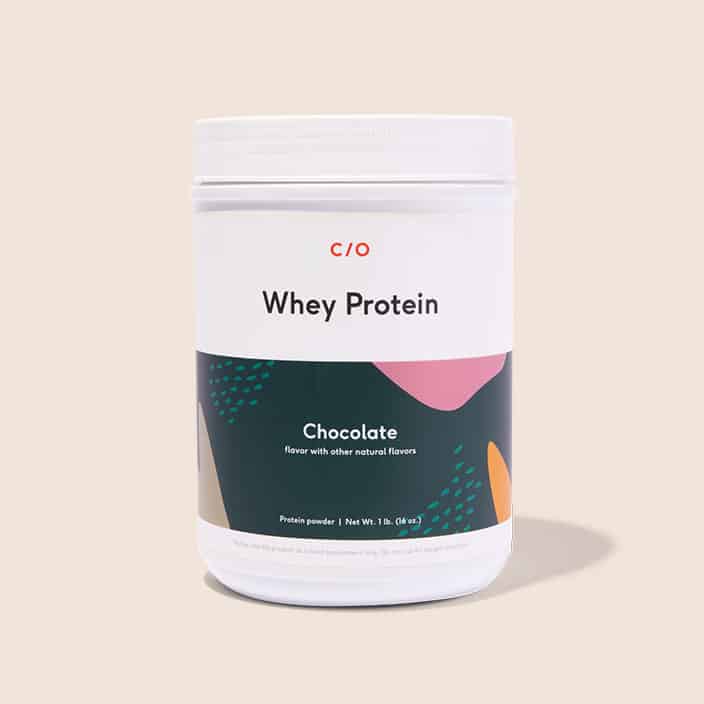
With two scoops, Care/of’s Chocolate Whey Protein Powder delivers 18 grams of grass-fed, whey protein isolate per meal. The synthesis and repair of muscle and other bodily tissues in both the mother and the fetus during pregnancy can be supported by whey protein, which is an optimal protein source and contains all important amino acids, including BCAAs. Care/of tests all of their products, including the protein powders, for potency and purity on an internal and external basis.
9. Drink Wholesome chocolate protein powder
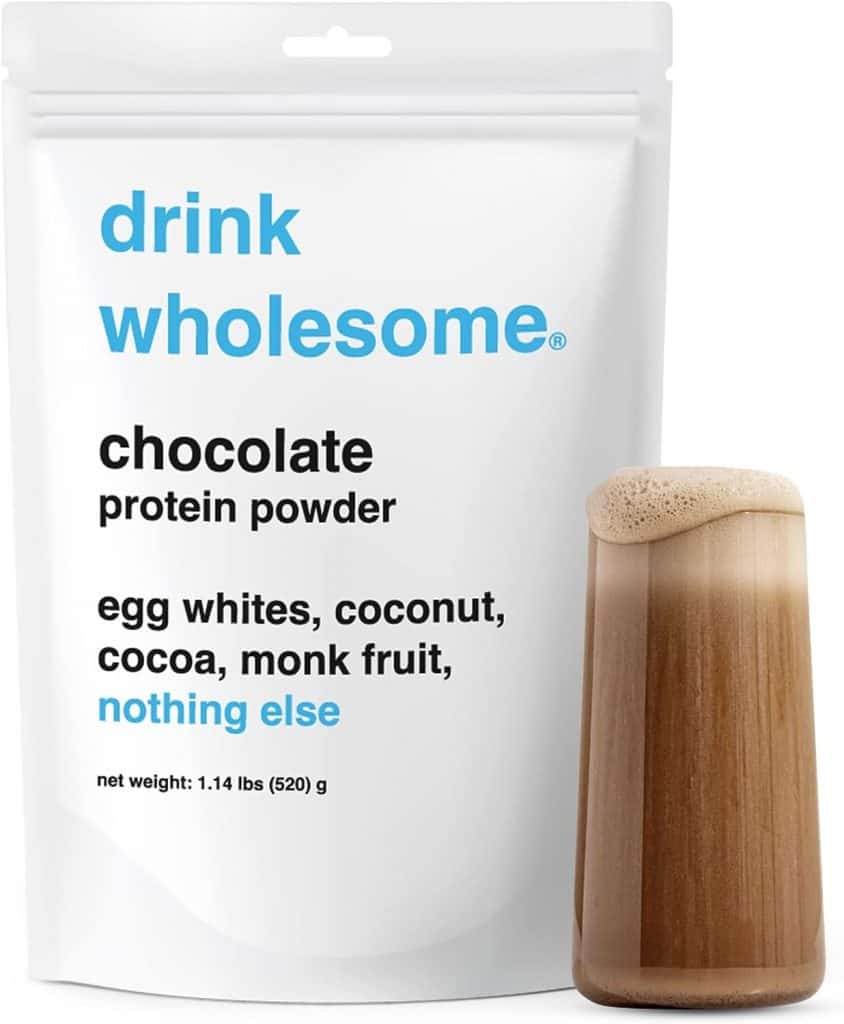
Drink Wholesome takes pride in producing protein powders that are easy to digest and soft on the stomach, unlike certain forms of protein powder that can result in bloating and gastrointestinal pain. This could be especially useful if you’re feeling queasy during pregnant. The products’ higher serving size of 1/2 cup results from the absence of protein concentrates.
10. Hemp Yeah!
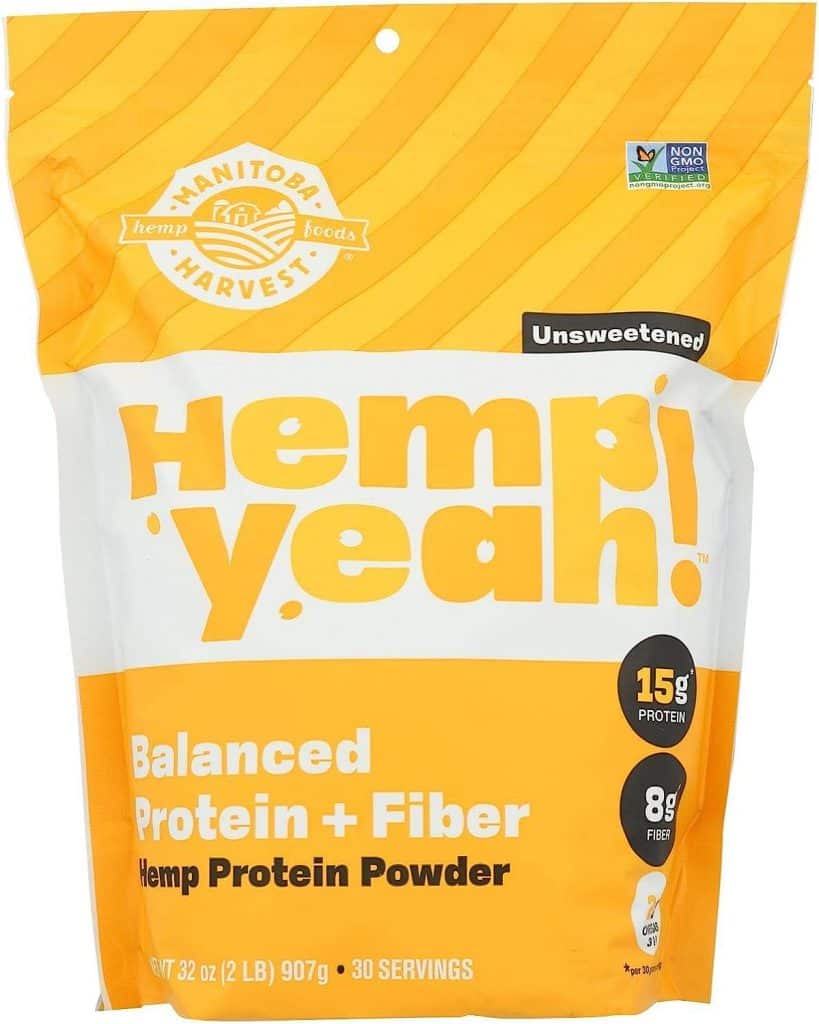
Hemp Yeah! In addition to being a vegan product, Balanced protein, and fiber is distinctive in that it is entirely comprised of nutrient-rich hemp seeds. In addition to offering plant-based omega-3 fatty acids and a whopping 8 grams of fiber per serving, hemp seeds are typically regarded as a complete protein source. During pregnancy, it’s critical to consume adequate fiber to promote healthy gut flora, support regular bowel movements, and assist digestion. A higher fiber intake is associated with a lower risk of the majority of chronic illnesses linked to lifestyle, including diabetes and heart disease.
11. Owyn Vegan protein shake
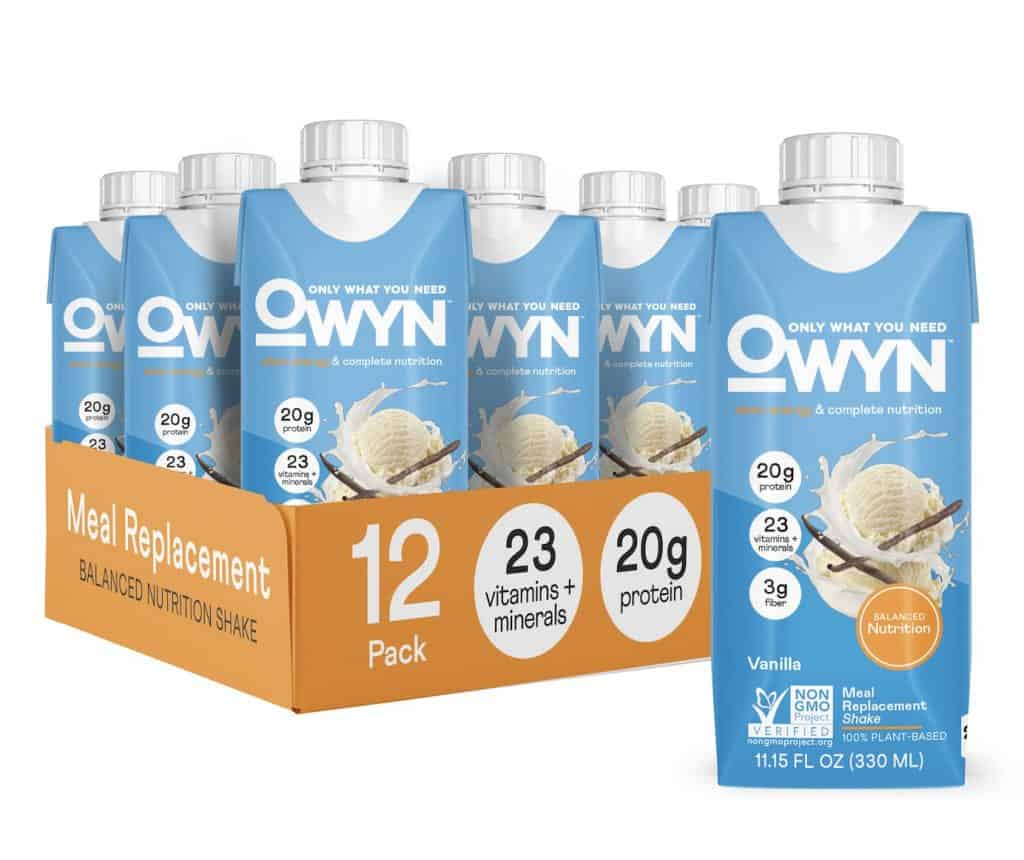
If you don’t have the time to prepare your own protein shake, Owyn provides a choice of vegan-friendly, pre-mixed protein drink flavors. Owyn does not include vitamins or minerals that, when coupled with a prenatal multivitamin, may exceed the daily guidelines, unlike many other pre-mixed smoothies. This smoothie naturally contains 5 grams of fiber and 30% of the recommended daily intake of iron because it is created from pea and pumpkin seed protein. You guessed it—it is also a full protein.
Is it safe to consume protein powders during conception or pregnancy?
Both yes and no are the responses. It’s vital to remember that foods like fish, poultry, and eggs should make up the majority of your daily protein consumption. These meals include important vitamins and minerals in addition to protein.
It is critical to evaluate protein powders’ vitamin and mineral content before purchasing. If you currently take a prenatal vitamin, it can be problematic if your protein powder or smoothie also contains extra vitamins and minerals.
It is possible to take more supplements than is advised because excesses of anything can be harmful. Your protein powder does not need to contain additional vitamins and minerals if you are currently taking a comprehensive prenatal vitamin.
In addition to the above-listed factors, protein powders also carry additional dangers. Possible contamination with heavy metals like lead, arsenic, cadmium, or mercury is one such concern.
The FDA’s regulation of the dietary supplement market, which includes protein powders, is weak. It is challenging to determine the dependability of manufacturers because it is their obligation to ensure safety, quality, and proper ingredient proportions.
It is critical to choose supplements, especially prenatal vitamins, that go through voluntary testing by outside medical reviewers in order to solve this issue. Look for third-party testing references on protein powder labels, such as the Clean Label Project.
It is essential to remember that “detectable” amounts of heavy metals do not always translate into dangerous levels in goods like protein powders.
Conclusion:
Protein powder can be a valuable addition to a pregnant woman’s diet, helping her meet increased protein requirements, supporting healthy fetal development, and aiding in maternal well-being.
However, it’s crucial to consult with a healthcare provider before incorporating protein powder into your pregnancy diet to ensure it aligns with your individual needs and medical history.
Remember, protein powder should complement a well-balanced diet, and whole food sources should remain the primary source of nutrients. By making informed choices, pregnant women can enjoy the benefits of protein powder as part of their overall prenatal nutrition strategy.









